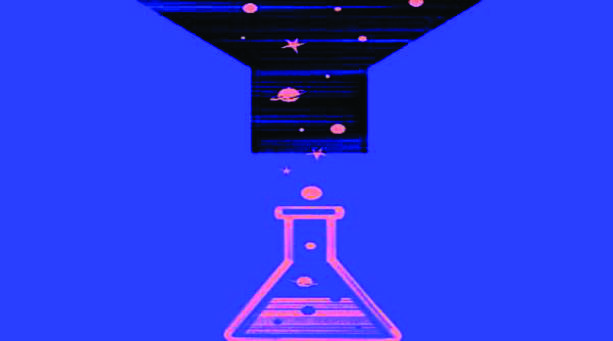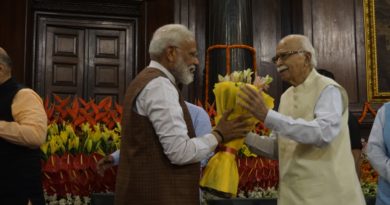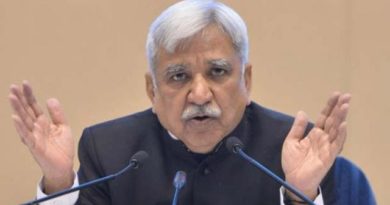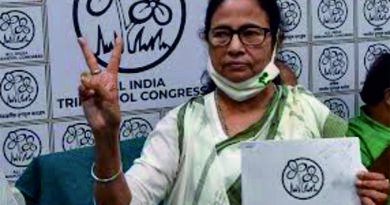Indians Have Great Trust In Science – So Why Is Pseudoscience Being Promoted
Partha P Majumder

Astrology has no scientific basis. It does not follow the method of science that comprises setting up a hypothesis, making predictions arising logically from the hypothesis, collecting empirical data to test these predictions, and concluding whether the hypothesis has a strong likelihood of being true. The State of Science Index (SOSI) 2021 was announced in June. The Indira Gandhi National Open University (IGNOU) announced the introduction of a Master’s programme in astrology (Jyotish) the same month. The first announcement made me happy because 90 percent of adults surveyed said that science is bringing hope for the future, driving hope for a better world to live in — a higher percentage, albeit slightly, than the global average of 89 percent. But the IGNOU announcement is an enormously retrogressive step that promotes pseudoscience, I felt.
IGNOU’s introduction of Master’s programme in Astrology is a step in the wrong direction, will only make citizens more irrational and society more obscurantist
SOSI was based on results obtained through a combination of online and offline interviews conducted by a global research firm, Ipsos. A demographically representative sample of 1,000 citizens, 18 years and older, were interviewed this year in February and March from each of 17 countries — Australia, Brazil, Canada, China, Columbia, France, Germany, India, Italy, Japan, Mexico, Poland, Singapore, South Korea, UAE, UK and the USA. In this survey, science was defined as “the process of pursuing knowledge about the world and how things in the world work through logically gathering, observing, experimenting and applying truths on a particular subject.”
Hope in science implies trust in science and scientists. Indeed, 90 percent of respondents from India said that they trust science, about the same (91 percent) as other global respondents. The vast majority (85 percent) also believe that society will be negatively impacted if science is not valued. “Science will make my life better in the next five years,” said 79 percent of respondents. It was also heartening to note that the ordinary citizen agreed to speak up to defend science if someone expressed scepticism against science; a significantly higher fraction (87 percent) of Indian citizens agreed to do so compared to citizens in other parts of the world (75 percent).
When there is so much trust in science and citizens of India believe that science will make their lives better, why are we systematically killing the scientific spirit by instilling in our citizens a body of irrational thought? And making sure that such thought gets a stamp of formal approval by introducing degree courses. The stamp will, of course, help irrational thoughts to percolate more easily into society.
In the current atmosphere, anyone who questions such decisions or motives is branded an anti-national. Even if we truly believe that there were significant scientific developments in ancient India, you cannot express disbelief in any claims made by those in power. Such as, cosmetic surgery thrived in ancient India exemplified in Ganesha with an elephant head and we flew airplanes long before the Wright brothers did. You question or express disbelief and the expanding bunch of jingoists will hound and harass you. They may even kill you. Remember Narendra Dabholkar and Gauri Lankesh.
Instead of taking advantage of the high level of trust in science among our citizens, as the SOSI survey indicates, to entrench science deeply in the minds of our people, especially school-going children, we are propagating unscientific thought and establishing pillars of pseudoscience. I also see some contradictory emphasis. There is a welcome emphasis in institutions of higher education to promote science communication by students, to encourage outreach programmes on science, to build living museums for the younger generation of science learners, etc. These are laudable efforts. Why are we introducing degree courses in astrology at the same time? Astrology has no scientific basis. It does not follow the method of science that comprises setting up a hypothesis, making predictions arising logically from the hypothesis, collecting empirical data to test these predictions, and concluding whether the hypothesis has a strong likelihood of being true. Astrology does not follow this process.
Objections to astrology are not new. Almost 50 years ago, in 1975, a group of 186 scientists, including many Nobel laureates (such as Hans Bethe, Francis Crick, Paul Samuelson, Niko Tinbergen, Peter Medawar, Linus Pauling), published a signed objection to astrology. They wished “to caution the public against the unquestioning acceptance of the predictions and advice given privately and publicly by astrologers. Those who wish to believe in astrology should realise that there is no scientific foundation for its tenets.”
In ancient times, the world view was magical. Planets and other celestial bodies were assumed to exert strong forces on the earth. These forces at birth were assumed to determine the course of our lives. Now that distances between planets and many stars have been calculated, we know that these forces are infinitesimally small to influence us.
The SOSI survey this year clearly indicates that 90 percent of our adult citizens trust science; 91 per cent agree that the world needs more people pursuing careers related to science, technology, engineering and mathematics. Yet, we are consciously introducing pseudoscientific degree courses. Our citizens will become more irrational and our society more obscurantist. Let us unite to denounce pseudoscience and promote the scientific spirit and temper. The pivot of national prosperity is science and the scientific spirit of its citizens.
The writer is National Science Chair, Government of India.



